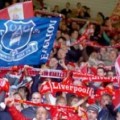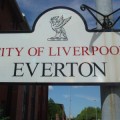How Corporate Football Has Killed The Teams We Once Loved
Football clubs care little about the fans or communities which they're founded on these days, choosing instead to cater for corporate sponsors and fair-weather fans. It's time we asked ourselves what we're really supporting.
There was a time when big football clubs weren’t corporate beasts with expansive marketing departments, synergies coming out of their arse and a list of corporate partners as long as your arm. They were just football clubs and ones that had their roots in the local communities from which they emerged. Local lads played for the team, local people paid to get in on a Saturday and support was largely confined to the city or town the club resided in. What’s more, where sponsors existed they were drawn from nearby and the club’s links with the local area formed a symbiotic relationship that benefited all.
Could you say the same thing today? I doubt it. What you have instead are brands, slick corporate brands backed by companies who happen to still be partly involved in the football business. You could choose any of the big five to prove this but because I’m an Evertonian and a kn*bhead, I’ll go for Liverpool.
Let’s take getting into a game first, because this is the starkest example of how little the big clubs think of the average local fan.
Back in 1990 if you wanted to go and watch Liverpool at home then the cheapest ticket available would set you back £4. Fast forward to 2011 and that same ticket cost £45. If football had followed the rate of inflation across the rest of the economy over that same period then the ticket should have cost around £7.
And the picture was just as dramatic when it came to the price of season tickets. During the 1989/90 season the cheapest one available at Anfield cost £60. Again, following the rate of inflation elsewhere, that season ticket should have only set Kopites back just over £100 in 2011. Instead, the average punter was expected to fork out a staggering £725 to get in to watch the reds all season.
Considering the fact that most people in Liverpool have not enjoyed inflation busting increases in wages since 1990 and that the city contains five of the top ten poorest districts in England, it’s not an enormous stretch of the imagination to think that the thousands that flock to Anfield on matchdays now are probably rich punters from outside the city.
Aside from their cavalier attitude to existing local fans, the club has also proven to be no friend to the nearby community. Back in the early 1990s, as part of their long-term plans to expand the stadium, Liverpool FC began buying up houses around the ground.
According to the Guardian, the reds used an agency to approach some householders, while other homes were bought by third parties then speedily sold on to the club. This approach left residents with the feeling that the club was buying up houses sneakily, in order to keep prices low.
A belief also persists amongst those same residents that these homes were then left empty in order to deliberately blight a previously vibrant community, something that would compel those left behind to sell-up. The fact that the area around Anfield is now in desperate need of regeneration would seem to back this theory up.
More…
All this is behaviour less suggestive of a community football club and instead more like that of a soulless private company. And with that in mind, let’s look at the corporate partners that the club has acquired in recent years.
Just last month, with much fanfare, Liverpool announced a multi-million pound partnership deal with Dunkin’ Brands Group, the American company behind Dunkin’ Donuts and ice-cream chain Baskin-Robbins. This is the same company whose wholesome food includes a turkey, cheddar and bacon sandwich (400 calories), a blueberry crumb donut (500 calories) and its signature Pumpkin Spice Coffee Coolatta (1,040 calories).
Keeping in mind that the club is situated in a city in which up to half of all 11 year-old boys and 40 per cent of all 11 year-old girls are overweight and which also has one of the highest childhood obesity rates in Britain, from a certain perspective you could say that tying the iconic Liverpool FC Crest together with a brand renowned for producing high-fat, highly sugared products might seem a tad irresponsible. But then responsibility and sponsorship rarely go hand-in-hand in top flight football. And if you want proof of that then take a look at Liverpool’s shirt sponsor, Standard Chartered. Back in 2012, it agreed to pay a $340m (£220m) fine to the New York Department of Financial Services, which had accused Standard Chartered of scheming with Iran (that’s right IRAN) to hide billions of pounds worth of transactions from the US authorities, leaving the financial system susceptible to “terrorists” and “drug kingpins”.
And this is not an isolated case. If you take a casual glance down the list of Liverpool’s principal corporate partners, partnerships that the club trumpets with glee, then you can find plenty of examples of shady practices.
Gatorade: Until recent public pressure this sports drink contained BVO, a flame retardant chemical that is banned in Europe, but its parent company PepsiCo has been criticised for operating in countries with oppressive regimes, such as Burma, China and the Philippines. It’s also been accused of testing its foodstuffs on animals and of collaborating with biotech companies that use technology originally derived from human fetuses in order to develop new food products.
MBNA: As if being a major contributor to George W. Bush’s Presidential Campaigns isn’t bad enough, here in the UK, MBNA have been criticised for mis-selling payment protection insurance and charging exorbitant interest rates on their credit cards.
What you have at Anfield then is essentially a company, one little different from any other company that operates in the UK. Profit maximisation is key, regardless of whether this means shafting your traditional supporter base, f**king-over the local community that once sustained you and jumping into bed with any other company waving wads of alluring cash, even if that cash is morally and ethically tainted.
Liverpool FC are far from alone from straying so far away from what a community football club is meant to be. In their place you could easily substitute any other big gun plying their trade in the upper reaches of the top flight. But they do illustrate a point. And that point is: what the f**k do we support nowadays?
There are still lots of us who follow football that claim to be left-wing, specifically in cities like Liverpool, Manchester and London. And yet we give our support and our money to companies that often represent capitalism at its ugliest and which bear almost no resemblance to the clubs that they once were.
I know that changing the team that you support is virtually impossible in football. But as fans, the next time our club wins the league, qualifies for Europe of bags a piece of domestic silverware, maybe we should remember that this has come at a cost and that cost is the very soul of the clubs we follow.
If you like it, Pass it on
 COMMENTS
COMMENTS
sounds like a blue noes is jelous.everton not that cheap either - and you have wooden chairs. i mean come on its 2014 have you not heard off plastic bar cheski.
As a liverpool fan, i can see several strong points you've made regarding football in general and my football club in particular. Although the argument itself about capitalism in football is a strong one. I think your points could have been made equally against everton or any other club in premier league. I dont think any club charges £7 for a ticket. However by targeting liverpool in particular, you just come across as a bitter blue, which is a shame, since as i said this is something many fans have probably thought about.
The simple answer is stop going to the match and don't watch it on telly either, if you feel that passionately about it. If you deny them money then they can't exist. There are still plenty of lower league and non-league teams you can go watch, that are reasonably priced.
Thousands of people have lost their jobs, libraries even homeless centres are being shut down in Liverpool - but EVERTONIAN MAYOR JOE ANDERSON borrowed 14 million pounds to buy Evertons training ground to save them money. ? the interest will be far more than the rent Everton pay. finch farm is not even 9in Liverpool.
I agree with many of these points regarding capitalism in football but picking on Liverpool makes you look bitter. You mention that season ticket prices should now be £100 but I suspect that you will find it very difficult to even find a football league team that has season ticket prices thay are that cheap. Everton themselves charge £445 to £672. Even the teams in the Blue Square premier charge more than £10 to get into a game and their minimum season tickets prices are a couple of hundred quid.
Jim clearly states in the article "You could choose any of the big five to prove this" and "In [Liverpool's] place you could easily substitute any other big gun".
As a lfc fan of 60years I have seen all the changes over the years when the only accents other than scousers accents was the away fans most of the visiting fans watching lfc have to get their tickets thru a travel company and pay for a hotel to.local fans don't have a chance to follow their team away as the same criteria goes there to.football has lost it soul and with that goes the passion
would anyone care to comment on the disgraceful use of taxpayers money I reported above.
Bitter blue. Get a life you sad sack.
This effort has been cobbled together from many much better articles in the football press over the course of the last 10 to 15 years. It says nothing new at all and predictable glosses over how appallingly fans were treated by clubs in the non-existent 'good old days'. Complete and utter pish.
Broadly agree with the thrust of the article. When I started going to Anfield in 1977, I remember paying 65p entry and 10p for programme. It was not necessary to buy a ticket up front usually. I gave up supporting a corporation long ago and now follow Tranmere.
Corporate football stinks. Not much football there anymore only corporate nonsense. Fans get fooled week after week. We should stop giving them our hard earned money.


 RELATED
RELATED




